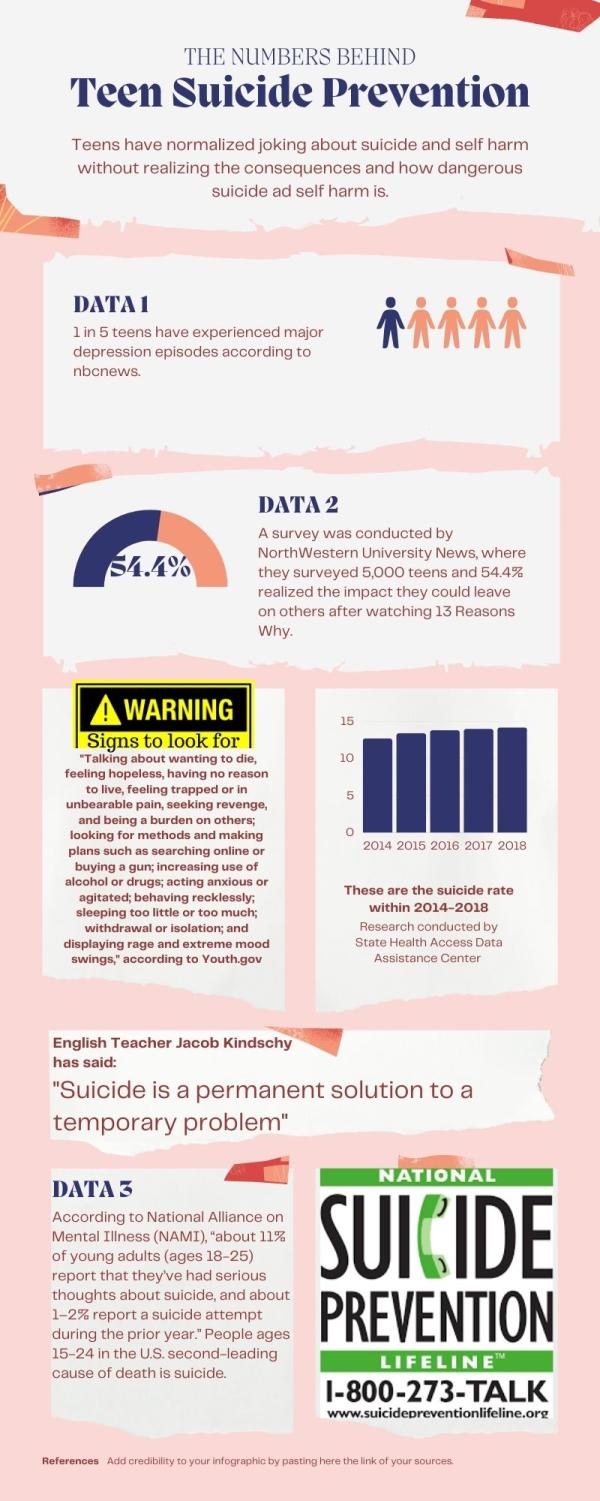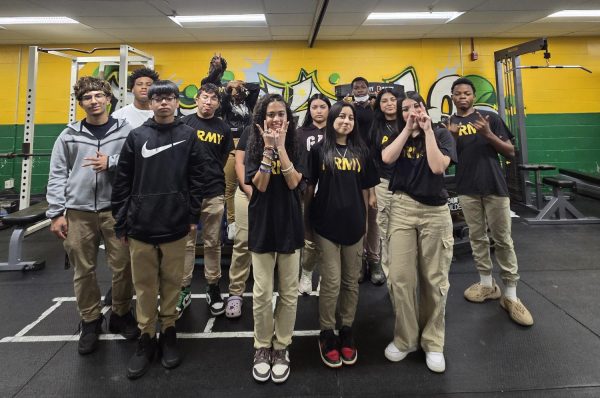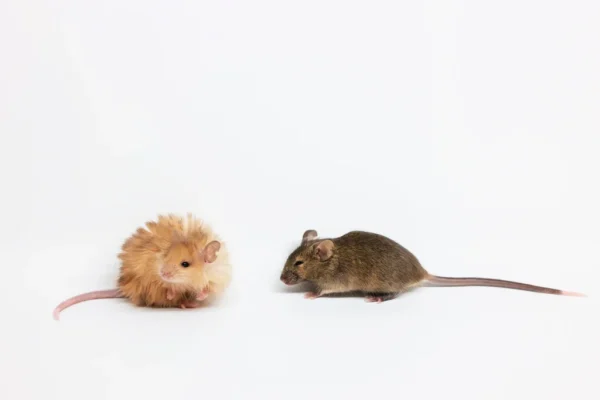Joking about suicide amongst teens could lead to desensitizing of serious issue
Trigger Warning: This article mentions suicide.
Have you ever walked down the halls and hear someone say, “This is it, that test was my 13th reason,” or “I’m gonna kill myself if this doesn’t work out”? Joking about suicide or self harm is so common within teens nowadays.
According to National Alliance on Mental Illness (NAMI), “about 11% of young adults (ages 18-25) report that they’ve had serious thoughts about suicide, and about 1–2% report a suicide attempt during the prior year.” People ages 15-24 in the U.S. second-leading cause of death is suicide.
 Teens do not realize that the “jokes” they make about suicide or self harm can be very hurtful especially to those who have thought or even attempted it. Some may argue that teens joke about suicide way too often.
Teens do not realize that the “jokes” they make about suicide or self harm can be very hurtful especially to those who have thought or even attempted it. Some may argue that teens joke about suicide way too often.
“I think they do,” said English teacher Jacob Kindschy. “However, I don’t think it’s necessarily teens’ fault for a number of reasons. Number one we try to make jokes about things that we fear, we try to make things less scary than they are. We joke about the unknown, the reality of sucide is terrifying, it’s the end, it’s all things done, over and it’s something that has affected everyone in someway.”
Suicide is becoming more and more common in our generation, especially with shows bringing awareness or talking about mental illness/health. Shows like 13 Reasons Why, Euphoria, Degrassi, etc. are very popular among teens and young adults as they talk about real problems and emotions that most teens and young adults feel.
While these shows have been informative resources on suicide, in a way, they’ve also made it more “mainstream” which could arguably lead to more comfort in talking–or worse, joking–about it.
People tend to make these “jokes” for numerous reasons. Some people find that joking about suicide and self-harm as a form of coping as they think it helps them feel better. Some people believe that by joking about suicide and self-harm, they are hinting for help.
“I do think jokes about suicide and self-harm is common among teens because I think it’s kind of like a coping mechanism for some,” said junior Khloe-Ann Carnegie. “I think social media contributed to suicidal jokes and also the fact that many of us don’t actually want to talk about our feelings on a deeper level so we make jokes about it and when other people laugh along with it we know that we aren’t really alone.”
With so many strong emotions that teens experience, instead of joking about it, some ideas to help get it off your chest is to start journaling whether that’s on your phone or in an actual journal, talk to a therapist, talk to your parents about it, etc.
“Suicide is a permanent solution to a temporary problem,” said Mr.Kindschy.
If you or someone you know is struggling, please contact the National Suicide Prevention Lifeline: 800-273-8255, the Maryland Youth Crisis Hotline: 1-800-422-0009, or NAMI Maryland: 410-863-0470.
Your donation will support the student journalists of Parkdale High School. Your contribution will allow us to cover our annual website hosting costs and publish some printed editions, as well.

Janet Boualy is a junior at Parkdale High School. This is her first year on staff as she was recommend by friends to take the class. She is a chief copy...






